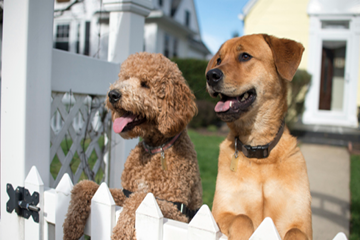
Tenancy Disputes
April 24, 2025
Ending a Residential Tenancy in NSW
May 23, 2025
Tenancy Disputes
April 24, 2025
Ending a Residential Tenancy in NSW
May 23, 2025
Pets, Pets and More Pets
Most NSW-based property agents are very aware that there are new residential tenancies laws that will come into effect on Monday 19 May 2025. One of the issues included in the new legislation relates to the keeping of pets in rented premises.
As of 19 May 2025, a tenant who wishes to have a pet at the rented premises must make an application for the landlord’s consent. The tenant can apply to have four (4) or less animals. This application must be made using the approved form provided by NSW Fair Trading and must be completed and submitted jointly by all tenants and co-tenants at the premises. As an agent, you will be receiving such requests from tenants either at the time of their application for a tenancy, or at any stage throughout the tenancy.
The landlord must give a written response to a tenant’s application within 21 days after the application is given to the landlord/agent. If the landlord does not respond within 21 days, the pet/s is deemed approved for those premises. This response from the landlord must specify whether consent is given or refused.
A tenant cannot be asked to increase the bond or rent as compensation for having a pet.
For rental premises in strata complexes, additional approval may be required, as the owners corporation may need to consider the reasonableness of an application. Every application must be considered on its individual merits, as an owners corporation cannot have a by-law that bans pets from the complex. For example, a tenant may make an application to have three dogs in an apartment in a strata complex. Whilst the landlord may say no, the owners corporation may override that decision and make a decision that only one dog will be approved, not three.
Like by-laws, advertisements cannot state that no pets are allowed at a rental property.
If a tenant disagrees with a decision from a landlord and/or an owners corporation, they will be able to apply to NCAT to have their application considered.
Once consent is provided to a tenant to keep a pet, that consent continues at that property for the life of the animal, even if the landlord or the agent changes.
A landlord may give consent subject to reasonable conditions about keeping a pet. Some examples include:
- for a type of animal that is not normally kept inside (such as a chicken), a condition preventing the animal being inside the premises
- for an animal that will be kept inside (such as a cat or dog), a condition requiring the tenant, at the end of the tenancy:
-
- to have carpets professional cleaned, and
- to have the premises professionally fumigated if the animal is a mammal
- there would be too many animals at the property
- the animal is likely to cause more damage than the value of the bond
- the landlord resides at the premises (that is if the property is the landlord’s place of residence) and the landlord will be moving back to the property
- the property is unsuitable for the animal
- the tenant does not agree to reasonable conditions for the keeping of a pet
So, the core of this matter is “reasonableness”. As agents, you need to consider what is appropriate for every separate rental property. The actual property will give you the best initial information about the suitability of having a pet in those premises, for example the size of the grounds, fencing issues, access through common areas for strata properties, the number of pets being listed on the application. There are many more variables, you just need to remember to always follow the process of collecting information, directing tenants to complete the required pet application form and to provide additional documentation about the pet if available.
Complete your property training with ACOP.


